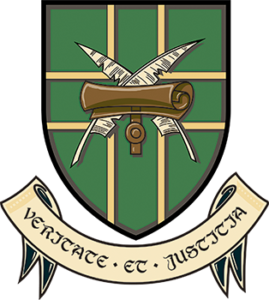The Code of Conduct for Notaries Public in Ireland obliges Notaries, as a matter of good practice, to establish the identity of all persons appearing before them to conduct notarial business.
Money laundering is the processing of criminal proceeds (cash and assets obtained from criminal activities) to disguise their illegal origin. It is a world-wide problem and governments have been taking major steps in recent years to combat it.
Money laundering has been treated as a very serious offence since the passing of the Criminal Justice Act in 1994. The Criminal Justice (Money Laundering and Terrorist Financing) Acts 2010 and 2013 update Irish anti-money laundering and terrorist financing legislation and brings it in line with the requirements of the third EU Anti-Money Laundering Directive (2005/60/EC). The Criminal Justice (Money Laundering and Terrorist Financing)(Amendment) Act 2018 transposed the fourth EU Anti-Money Laundering Directive (2015/849/EU) into Irish law.
Notaries are obliged under the above legislation to put in place measures to prevent money-laundering and report suspicious transactions.
Identity of appearer
The Notary Public before whom a person appears to transact notarial business is obliged to obtain identification from the appearer and is entitled to request at least two of the following three forms of identity one of which must be a document with your current address on it:-
- Passport
- Driving Licence
- Utility bill
The Notary may make, and retain on file for five years, a copy of any identification document produced to the Notary On occasions, the Notary may request a letter of introduction from your Solicitor. Driving licences are not generally accepted by Notaries if the transaction has a foreign element i.e. is concerned with the movement or acquisition of assets or property outside the State.
Obligation to report a suspicious transaction
Notaries appreciate that information given to them, as indeed to all lawyers, carries a very high level of confidentiality. However, in certain circumstances, where a Notary suspects that a transaction involving the acquisition or transfer of assets is ‘tainted’ i.e. the monies or assets being dealt with represent the proceeds of crime or terrorism, a legal obligation arises to report such suspicion to an Garda Síochána. For this reason, appearers should be in a position to give satisfactory explanations to the Notary as to the source of funds or assets involved in the notarial transaction.
What are the proceeds of crime?
For the purposes of money-laundering legislation currently in force, the proceeds of crime include not only the proceeds of drug dealing, racketeering and terrorism, but also tax evasion, social welfare fraud and minor criminality. For example, the purchase of a foreign property with untaxed income or with social welfare or other benefits obtained unlawfully would be a ‘tainted’ asset and any transfer would amount to an offence or money-laundering.
The obligation not to conceal or disguise the true nature of assets
Appearers should be in a position to give satisfactory explanations to the Notary as to the source of funds or assets involved in the notarial transaction. A letter from the appearer’s own solicitors or bankers or some other reputable institution may allay any fears that the assets may be ‘tainted’.

